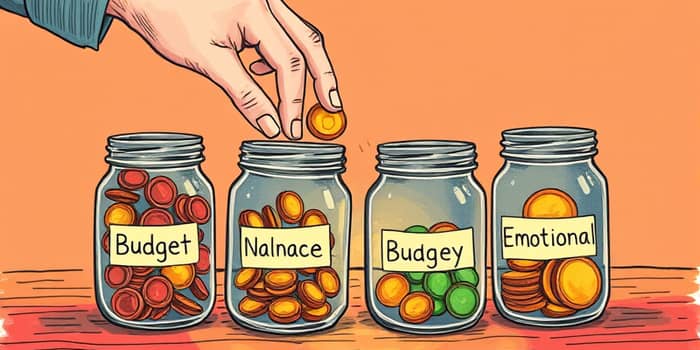
Embark on a budgeting journey where precision meets financial compassion. In today’s fast-paced world, managing money can feel like walking a tightrope—one misstep, and stress follows. But what if you could craft a budget that not only accounts for every dollar but also embraces your emotional needs? By blending the structural power of zero-based budgeting with an understanding of human impulses, you can build a financial plan that is both effective and sustainable.
Zero-based budgeting (ZBB) is a method where every dollar is given a job. Unlike traditional budgets that roll over previous allocations, ZBB forces you to start each month from scratch, assigning income to specific categories. The goal is simple: income minus expenses equals zero, meaning every dollar is purposefully directed.
To implement ZBB, begin by listing all income sources. Then, detail every expense—fixed and variable. Finally, allocate any remaining funds to savings, debt repayment, or other financial goals. This approach requires careful examination of expenses and aligns spending with your priorities.
One of the primary advantages of zero-based budgeting is clarity. By scrutinizing every line item, you gain deep insights into spending habits and identify areas of waste. This intense focus creates intentionality in spending choices and drives greater accountability. Moreover, prioritizing savings and debt repayment from the outset ensures that financial goals are not sidelined by impulse purchases.
However, ZBB can be time-consuming. Building a budget from the ground up demands dedication and regular maintenance. For those with unpredictable incomes or lifestyles, the process might feel rigid. The need to justify each expense anew can be overwhelming, leading some to abandon the system. Recognizing these challenges is crucial to tailoring the approach to your life and mindset.
Money management is as much about psychology as it is about numbers. Emotional flexibility is the ability to adjust your budget in response to feelings, triggers, and unforeseen events without losing sight of long-term objectives. By anticipating emotional spending, you build resilience and avoid the guilt that often accompanies unplanned purchases.
Common emotional triggers include:
Follow these practical steps to blend zero-based budgeting with emotional freedom:
The following table illustrates how a $4,000 monthly take-home pay might be allocated under a zero-based framework with an emotional flexibility buffer.
Maintaining a balanced budget requires both rigor and kindness toward yourself. Adopt these habits to stay on track:
Zero-based budgeting offers a structured way to make every dollar work toward your goals. When combined with emotional flexibility, it transforms from a rigid system into a living framework that adapts to life’s unpredictability.
By acknowledging emotional triggers, setting aside a flex fund, and reviewing your budget with compassion, you ensure both financial health and personal well-being. Embrace this holistic approach to budgeting, and you’ll find that money management becomes not just a chore, but a source of empowerment and joy.
References













